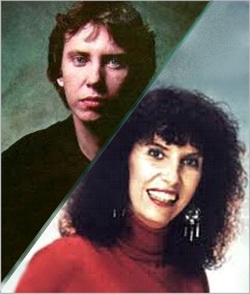
Name: Danielle Bunten Berry
Birth: 02-19-1949
Death: 07-03-1998
Games Created or Co-created: M.U.L.E., The Seven Cities of Gold, Wheeler Dealers, Heart of Africa, Robot Rascals, Modem Wars, Axis and Allies, Global Conquest, Warsport, Computer Quarterback, Cartels and Cutthroats, Command HQ, Cytron Masters
Other Works: Various articles for computer magazines and industry journals
Cause of Death: Lung Cancer
Birth: 02-19-1949
Death: 07-03-1998
Games Created or Co-created: M.U.L.E., The Seven Cities of Gold, Wheeler Dealers, Heart of Africa, Robot Rascals, Modem Wars, Axis and Allies, Global Conquest, Warsport, Computer Quarterback, Cartels and Cutthroats, Command HQ, Cytron Masters
Other Works: Various articles for computer magazines and industry journals
Cause of Death: Lung Cancer
Born Dan Bunten, Danielle Bunten Berry was best known for her application of multiplayer gameplay in almost all of her games. Her first commercial game in 1978, Wheeler Dealers, came with a special controller for the Apple II that allowed up to four players to play simultaneously. She wanted it to be a four player game. Since the Apple II didn't support four joysticks, she actually built a special controller to include with the game so that Apple II owners could play the game the way it was intended.
Dani's game designs were years ahead of their time. Though she knew she could capitalize on focusing on the single-player aspect of gaming, she felt it was more important that people form a connection with other people, not their computer. She always believed that the computer should act as a vehicle to bring people together, not keep them separated and alone.
"No one ever said on their deathbed, 'Gee, I wish I had spent more time alone with my computer'"
-Danielle Bunten Berry, during a keynote address in 1990
Though Wheeler Dealers was a poor seller (only 50 copies!), she held onto the belief that the world would be a better place by bringing people together to share in the gaming experience. She drew this belief from her own history, remembering the only times that her family spent together that weren't totally dysfunctional were when they were playing games together. To her, designing multiplayer games was simply the only, logical next step in the video game industry.
Her next game Computer Quarterback was originally designed to be a 2-player only game. Reluctantly, she added the 1-player mode at the request of the publisher, SSI (Strategic Simulations, Inc). This game was also a poor seller, something she was later quoted as saying that it had more to do with the lack of graphics and sound, than the gameplay itself.
Carrying over the programming concepts she learned from Wheeler Dealers and Computer Quarterback, she decided to write a business management / strategy / economic simulation titled Cartels & Cutthroats. She made sure it included a heavy multiplayer element, allowing up to six players at a time. This game caught the attention of Trip Hawkins, founder of Electronic Arts.
"Trip Hawkins wanted to get the rights to "Cartels & Cutthroats", a standard business strategy game I wrote for SSI, but the publisher wouldn't let it go. I told him I could do a better original. Nine months later we shipped "M.U.L.E." for the Atari 800."
-Danielle Bunten Berry
Unable to procure the publishing rights to Cartels & Cutthroats, Dani, and her newly created software company Ozark Softscape, delivered on her promise to create a "better original". M.U.L.E.* was that result of that promise.
This game not only encouraged teamwork in building and sustaining a colony, but also brought out fierce competition at the same time it was bringing people together. Many consider M.U.L.E. to be one of the greatest computer games of all time. Even today, there are websites dedicated to preserving its history, and revitalizing it in new forms (i.e. online play, and clones honoring the original gameplay).
"Wheeler Dealers" showed me how engaging a real time auction could be"
-Danielle Bunten Berry commenting on M.U.L.E. gameplay
The play mechanics of M.U.L.E. proved to be a good formula for game design, however the sales numbers for the game were low. Selling only 30,000 copies on the Atari 800, Dani said that number of copies "ain't half bad" for a system that was about to be discontinued.
Another factor that could have contributed to the low sales numbers may have been the many illegal duplications of the game floating around (M.U.L.E. started out on floppy disks, an easily duplicable media). M.U.L.E. eventually went on to receive a cult following, but still only became a phenomenon years after it was released. Nevertheless, Dani and the team at Ozark were tossing around another game idea that would eventually leave M.U.L.E. in the barn. .
"'Seven Cities of Gold' was my best selling game. It garnered a SPA Gold Disk and a number of minor awards. It was also my first game that didn't allow for more than one player"
-Danielle Bunten Berry
Certainly, M.U.L.E. can be considered a success due to its popularity and cult following. However, with Seven Cities of Gold, more gamers spoke with their wallets. Starting out as a multiplayer game, it was decided during development to remove that aspect.
As a single-player only game, it was not only a lot of fun to play, it was quite an accomplishment from a technical standpoint too. Several technologies were created just to be able to run the game. For example, streaming maps from the disk without interrupting gameplay was something Ozark had to invent in order for it to exist. Dani didn't want irritating interruptions during play, so this was an important aspect to the design.
With the success of Seven Cities (over 100,000 copies sold**), Dani decided to make an unofficial follow up game called Heart of Africa. But, it didn't fare quite as well - achieving less than half the sales as Seven Cities. Robot Rascals was released shortly after, with even less reception.
The most notable criticism was it's lack of single player mode and it's minimum requirement of four players. That, plus the fact that it didn't fit any particular genre - a scavenger hunt video game that required physical playing cards (included with the package) to play.
The game, though well designed, and praised by some computer magazines, was simply unapproachable by many. Released in 1986, it was rare that one person in a household had a computer, and even more rare that anyone else in the house wanted anything to do with that computer. Unfortunately, Robot Rascals didn't catch on.
In what seemed like a very long delay before their next title, Ozark released Modem Wars - the first multi-computer online game. 'Online' in the sense that two players connected their computers to play the game via modem, or null modem serial connection.
Though Robot Rascals marked the start of reinvigorating the multiplayer aspect of gaming, Modem Wars raised the bar, It was the first, true online game, and also forged the beginnings of Real-Time Tactics gameplay. Modem Wars, originally titled Sport of War, did have a computer opponent available for the single-player experience, but the real purpose of the game was for each player to be sitting at their own computer.
"You play the game as a wargame, but you accumulate points as if it were a sports game"
-Computer Gaming World magazine, February 1989
Unfortunately, timing can be everything. Modem Wars was released when few players had modems, and few PCs came with a mouse (Modem Wars had a unique mouse-driven interface). Though Dani was able to bring that technology forward into her future games: Command HQ and and Global Conquest.
Considered one of the earliest Real-Time Strategy games, Command HQ became the precursor to games such as Command & Conquer, and Dune II. Global Conquest, however, allowed up to four players (where Command HQ was a one-on-one game), with more exploration, resource development, and piece by piece gameplay (like Chess). It even allowed you to send spies to steal secrets from opposing teams.
Global Conquest was the first four player network game released by a publisher, and the last game Dani designed. 1992 was a year of many changes for Dani. Her final game, Global Conquest, was published, Ozark Softscape dissolved, and years of living with a well-kept secret were coming to an end. This was the year she took the leap and made the transition from Dan to Danielle. Although she continued to contribute toward games until her death in 1998, she was more focused on her new life as a woman, and all the challenges that came with it.
"Dan Bunten, he's damn good"
-Chris Crawford in an interview in Computer Gaming World magazine
Final Words
I almost chose not to write about Dani's sex reassignment surgery, thinking that it was unnecessary and may be seen as sensationalist. However, I changed that thought when I read that Dani views her history as having lived the lives of two different people: Dan and Dani. She's even stated in interviews how different she is from "Dan":
"...I'm not as good a programmer as he was. I'm also not as willing to sit for hours in front of a computer to make something that other people can use to socialize. I tend to need to socialize far more often than he did."
-Dani Bunten Berry speaking of Dan Bunten
The operation affected every aspect of her life. However, it will never alter the fact that she wrote some of the most innovative and groundbreaking software of the day, focusing on the player experience over everything else, including profit.
Almost every interview I've read from game designers who knew, or knew of, Dani talk about her amazing contributions to the industry, her outgoing and approachable nature, her friendliness, her honesty, and her brilliance. In 1998, her career was recognized to have had a profound and lasting impact on computer gaming.
She was awarded the Lifetime Achievement Award from the Computer Game Developers Association. She died from lung cancer two months after receiving the award.
We miss you Dani.
What you may not know:
**Dani has been quoted saying that Seven Cities of Gold sold over 150,000 copies since EA distributed the game to "every machine invented"
Portfolio
Dani's game designs were years ahead of their time. Though she knew she could capitalize on focusing on the single-player aspect of gaming, she felt it was more important that people form a connection with other people, not their computer. She always believed that the computer should act as a vehicle to bring people together, not keep them separated and alone.
"No one ever said on their deathbed, 'Gee, I wish I had spent more time alone with my computer'"
-Danielle Bunten Berry, during a keynote address in 1990
Though Wheeler Dealers was a poor seller (only 50 copies!), she held onto the belief that the world would be a better place by bringing people together to share in the gaming experience. She drew this belief from her own history, remembering the only times that her family spent together that weren't totally dysfunctional were when they were playing games together. To her, designing multiplayer games was simply the only, logical next step in the video game industry.
Her next game Computer Quarterback was originally designed to be a 2-player only game. Reluctantly, she added the 1-player mode at the request of the publisher, SSI (Strategic Simulations, Inc). This game was also a poor seller, something she was later quoted as saying that it had more to do with the lack of graphics and sound, than the gameplay itself.
Carrying over the programming concepts she learned from Wheeler Dealers and Computer Quarterback, she decided to write a business management / strategy / economic simulation titled Cartels & Cutthroats. She made sure it included a heavy multiplayer element, allowing up to six players at a time. This game caught the attention of Trip Hawkins, founder of Electronic Arts.
"Trip Hawkins wanted to get the rights to "Cartels & Cutthroats", a standard business strategy game I wrote for SSI, but the publisher wouldn't let it go. I told him I could do a better original. Nine months later we shipped "M.U.L.E." for the Atari 800."
-Danielle Bunten Berry
Unable to procure the publishing rights to Cartels & Cutthroats, Dani, and her newly created software company Ozark Softscape, delivered on her promise to create a "better original". M.U.L.E.* was that result of that promise.
This game not only encouraged teamwork in building and sustaining a colony, but also brought out fierce competition at the same time it was bringing people together. Many consider M.U.L.E. to be one of the greatest computer games of all time. Even today, there are websites dedicated to preserving its history, and revitalizing it in new forms (i.e. online play, and clones honoring the original gameplay).
"Wheeler Dealers" showed me how engaging a real time auction could be"
-Danielle Bunten Berry commenting on M.U.L.E. gameplay
The play mechanics of M.U.L.E. proved to be a good formula for game design, however the sales numbers for the game were low. Selling only 30,000 copies on the Atari 800, Dani said that number of copies "ain't half bad" for a system that was about to be discontinued.
Another factor that could have contributed to the low sales numbers may have been the many illegal duplications of the game floating around (M.U.L.E. started out on floppy disks, an easily duplicable media). M.U.L.E. eventually went on to receive a cult following, but still only became a phenomenon years after it was released. Nevertheless, Dani and the team at Ozark were tossing around another game idea that would eventually leave M.U.L.E. in the barn. .
"'Seven Cities of Gold' was my best selling game. It garnered a SPA Gold Disk and a number of minor awards. It was also my first game that didn't allow for more than one player"
-Danielle Bunten Berry
Certainly, M.U.L.E. can be considered a success due to its popularity and cult following. However, with Seven Cities of Gold, more gamers spoke with their wallets. Starting out as a multiplayer game, it was decided during development to remove that aspect.
As a single-player only game, it was not only a lot of fun to play, it was quite an accomplishment from a technical standpoint too. Several technologies were created just to be able to run the game. For example, streaming maps from the disk without interrupting gameplay was something Ozark had to invent in order for it to exist. Dani didn't want irritating interruptions during play, so this was an important aspect to the design.
With the success of Seven Cities (over 100,000 copies sold**), Dani decided to make an unofficial follow up game called Heart of Africa. But, it didn't fare quite as well - achieving less than half the sales as Seven Cities. Robot Rascals was released shortly after, with even less reception.
The most notable criticism was it's lack of single player mode and it's minimum requirement of four players. That, plus the fact that it didn't fit any particular genre - a scavenger hunt video game that required physical playing cards (included with the package) to play.
The game, though well designed, and praised by some computer magazines, was simply unapproachable by many. Released in 1986, it was rare that one person in a household had a computer, and even more rare that anyone else in the house wanted anything to do with that computer. Unfortunately, Robot Rascals didn't catch on.
In what seemed like a very long delay before their next title, Ozark released Modem Wars - the first multi-computer online game. 'Online' in the sense that two players connected their computers to play the game via modem, or null modem serial connection.
Though Robot Rascals marked the start of reinvigorating the multiplayer aspect of gaming, Modem Wars raised the bar, It was the first, true online game, and also forged the beginnings of Real-Time Tactics gameplay. Modem Wars, originally titled Sport of War, did have a computer opponent available for the single-player experience, but the real purpose of the game was for each player to be sitting at their own computer.
"You play the game as a wargame, but you accumulate points as if it were a sports game"
-Computer Gaming World magazine, February 1989
Unfortunately, timing can be everything. Modem Wars was released when few players had modems, and few PCs came with a mouse (Modem Wars had a unique mouse-driven interface). Though Dani was able to bring that technology forward into her future games: Command HQ and and Global Conquest.
Considered one of the earliest Real-Time Strategy games, Command HQ became the precursor to games such as Command & Conquer, and Dune II. Global Conquest, however, allowed up to four players (where Command HQ was a one-on-one game), with more exploration, resource development, and piece by piece gameplay (like Chess). It even allowed you to send spies to steal secrets from opposing teams.
Global Conquest was the first four player network game released by a publisher, and the last game Dani designed. 1992 was a year of many changes for Dani. Her final game, Global Conquest, was published, Ozark Softscape dissolved, and years of living with a well-kept secret were coming to an end. This was the year she took the leap and made the transition from Dan to Danielle. Although she continued to contribute toward games until her death in 1998, she was more focused on her new life as a woman, and all the challenges that came with it.
"Dan Bunten, he's damn good"
-Chris Crawford in an interview in Computer Gaming World magazine
Final Words
I almost chose not to write about Dani's sex reassignment surgery, thinking that it was unnecessary and may be seen as sensationalist. However, I changed that thought when I read that Dani views her history as having lived the lives of two different people: Dan and Dani. She's even stated in interviews how different she is from "Dan":
"...I'm not as good a programmer as he was. I'm also not as willing to sit for hours in front of a computer to make something that other people can use to socialize. I tend to need to socialize far more often than he did."
-Dani Bunten Berry speaking of Dan Bunten
The operation affected every aspect of her life. However, it will never alter the fact that she wrote some of the most innovative and groundbreaking software of the day, focusing on the player experience over everything else, including profit.
Almost every interview I've read from game designers who knew, or knew of, Dani talk about her amazing contributions to the industry, her outgoing and approachable nature, her friendliness, her honesty, and her brilliance. In 1998, her career was recognized to have had a profound and lasting impact on computer gaming.
She was awarded the Lifetime Achievement Award from the Computer Game Developers Association. She died from lung cancer two months after receiving the award.
We miss you Dani.
What you may not know:
- Computer Quarterback was originally written as an in-house only game for Dani and her friends to play at work
- The Sega version of M.U.L.E. was cancelled due to Dani's refusal to add "bombs and guns" to the game
- Robot Rascals' working title was Scavenger Hunt
- There have been several game programmers over the years that have undergone sex reassignment surgery including Cathryn Mataga (Shamus, Brimstone, Neverwinter Nights, Rayman, and others) and Jamie Faye Fenton (Gorf, Datsun 280ZZZAP, Checkmate, Robby Roto). There are others too, but they probably aren't so public about it.
- Dani actually expressed some regret having what she called the "pronoun change", stating that , "There's any number of ways to express your gender and sexuality and the only one I tried was the big one. I'll never know if I could have found a compromise that might have worked a lot better than the "one size fits all" sex-change." Though she came to find a peace with her new identity, she still missed the friends and family that disappeared in the wake of her change.
- Dani Bunten was highly approachable, and welcomed letters and emails. Many of the articles she wrote typically ended with "Feel free to contact me..."
- Dani left EA due to the fact that Trip Hawkins did not want to develop cartridge-based games. Dani wanted to port M.U.L.E. to the Nintendo system on a cartridge. When she was denied, Ozark broke away from EA. Oddly enough, Electronic Arts eventually did go on to develop cartridge-based games, and became quite profitable at it.
- In the game Modem Wars, a gentle anti-piracy message written by Dan Bunten can be found hidden in the code. Many programmers insert messages into their code knowing that someone will eventually "decode" their program, and possibly illegally duplicate it by "cracking" the protection.
- In the game Cartels & Cutthroats, when you choose to play against the computer, the company that the computer chooses to manage is called Apple Addicts Ltd. This is probably a throwback to the Little Rock Apple Addicts Club, where Dani spent some nights teaching the club members about assembly language programming.
**Dani has been quoted saying that Seven Cities of Gold sold over 150,000 copies since EA distributed the game to "every machine invented"
Portfolio
Title: Wheeler Dealers
Company: Speakeasy Software
Year: 1978
Platform: Apple II
Company: Speakeasy Software
Year: 1978
Platform: Apple II
Title: Computer Quarterback
Company: Strategic Simulations, Inc
Year: 1979
Platform: Apple II
Company: Strategic Simulations, Inc
Year: 1979
Platform: Apple II
Title: Cartels & Cutthroats
Company: Strategic Simulations, Inc
Year: 1981
Platform: Apple II
Company: Strategic Simulations, Inc
Year: 1981
Platform: Apple II
Title: Cytron Masters
Company: Rapid Fire
Year: 1982
Platform: Apple II
Company: Rapid Fire
Year: 1982
Platform: Apple II
Title: M.U.L.E.
Company: Electronic Arts
Year: 1983
Platform: Atari 800
Company: Electronic Arts
Year: 1983
Platform: Atari 800
Title: Seven Cities of Gold
Company: Electronic Arts
Year: 1984
Platform: Atari 800
Company: Electronic Arts
Year: 1984
Platform: Atari 800
Title: Heart of Africa
Company: Electronic Arts
Year: 1985
Platform: Commodore 64
Company: Electronic Arts
Year: 1985
Platform: Commodore 64
Title: Robot Rascals
Company: Electronic Arts
Year: 1986
Platform: Commodore 64
Company: Electronic Arts
Year: 1986
Platform: Commodore 64
Title: Command HQ
Company: MicroPlay Software
Year: 1990
Platform: DOS
Company: MicroPlay Software
Year: 1990
Platform: DOS
Title: Global Conquest
Company: MicroPlay Software
Year: 1992
Platform: DOS
Company: MicroPlay Software
Year: 1992
Platform: DOS
Other Media
If you have know of any inaccuracies in this post, or have any more information to contribute, please contact me.
You Are Remembered Dani Bunten Berry
Sources
http://en.wikipedia.org/wiki/Danielle_Bunten_Berry
http://ludix.com/moriarty/dani.html
http://www.dadgum.com/halcyon/BOOK/BERRY.HTM
http://www.worldofmule.net/tiki-index.php?page=Dani+Bunten+memorial+page
http://members.chello.at/theodor.lauppert/games/modem_wars.htm
http://www.giantbomb.com/anne-westfall/72-5416/all-images/52-290894/ea_ad/51-883071/
Next Generation Online
Computer Gaming World Magazine
"Imaginary Playmates in Real-time or Why Online Games Suck"
-1997 speech by Dani Bunten Berry at the 1997 Computer Games Developers Conference
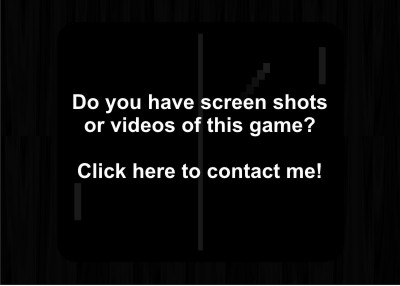
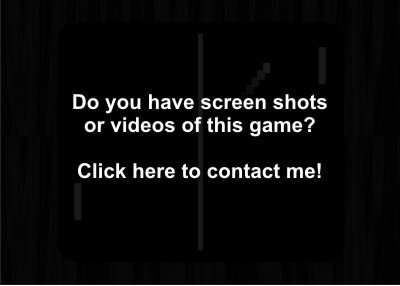
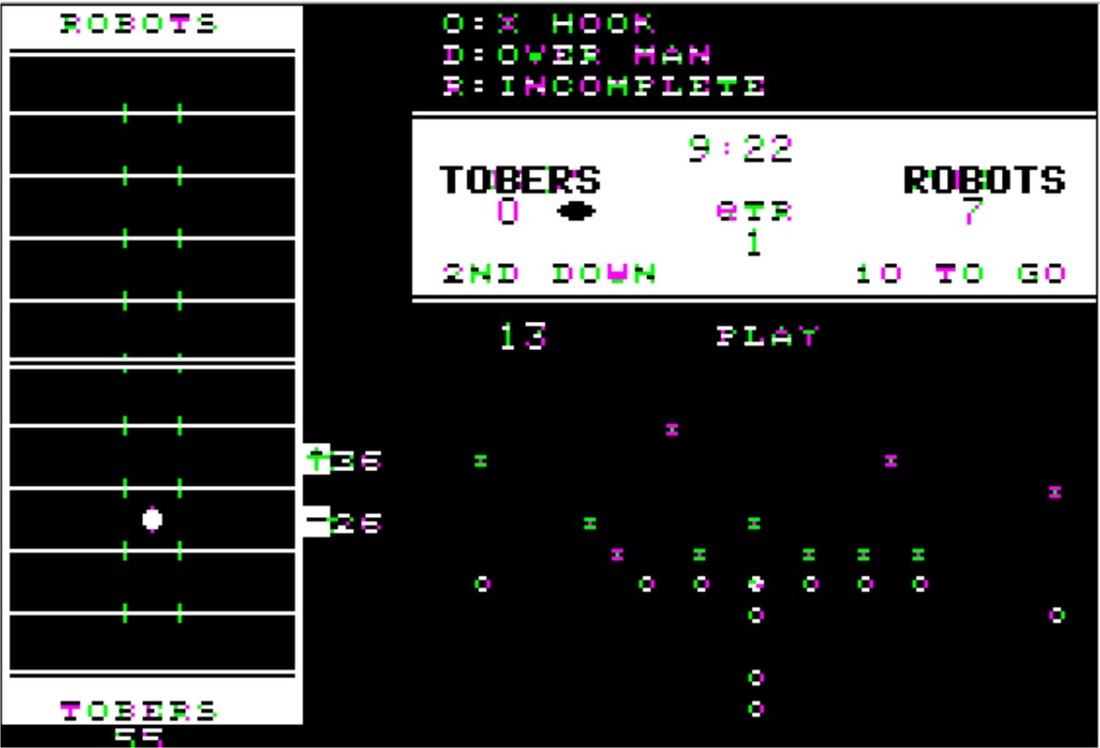
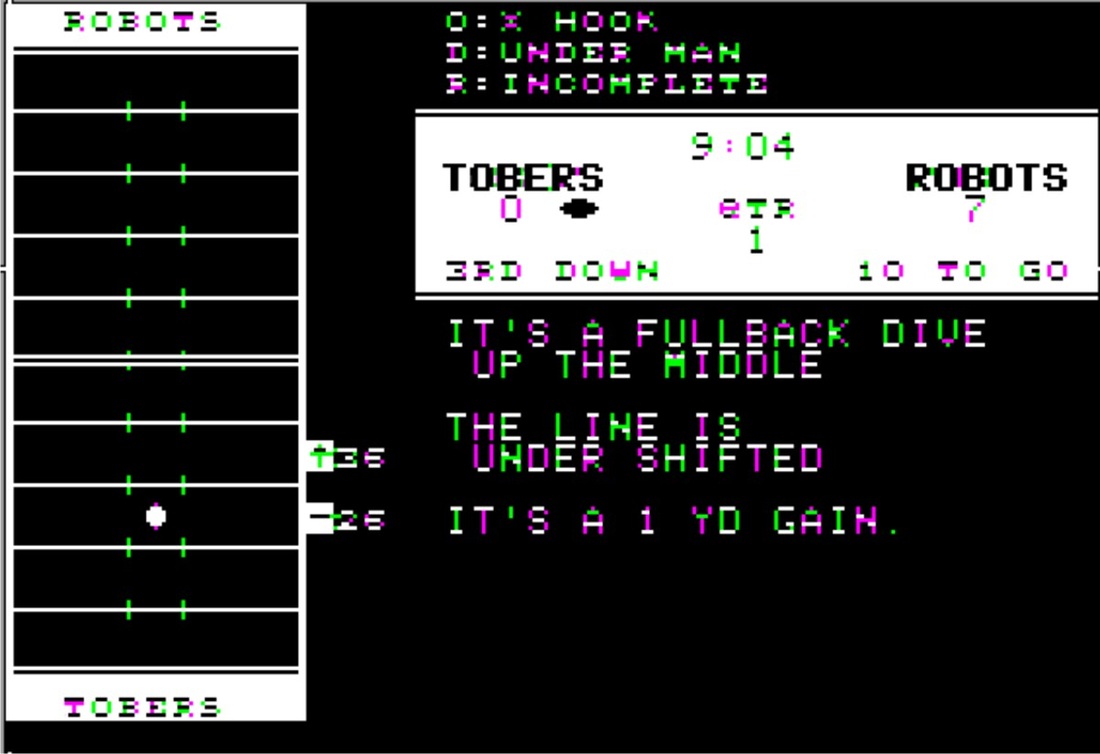
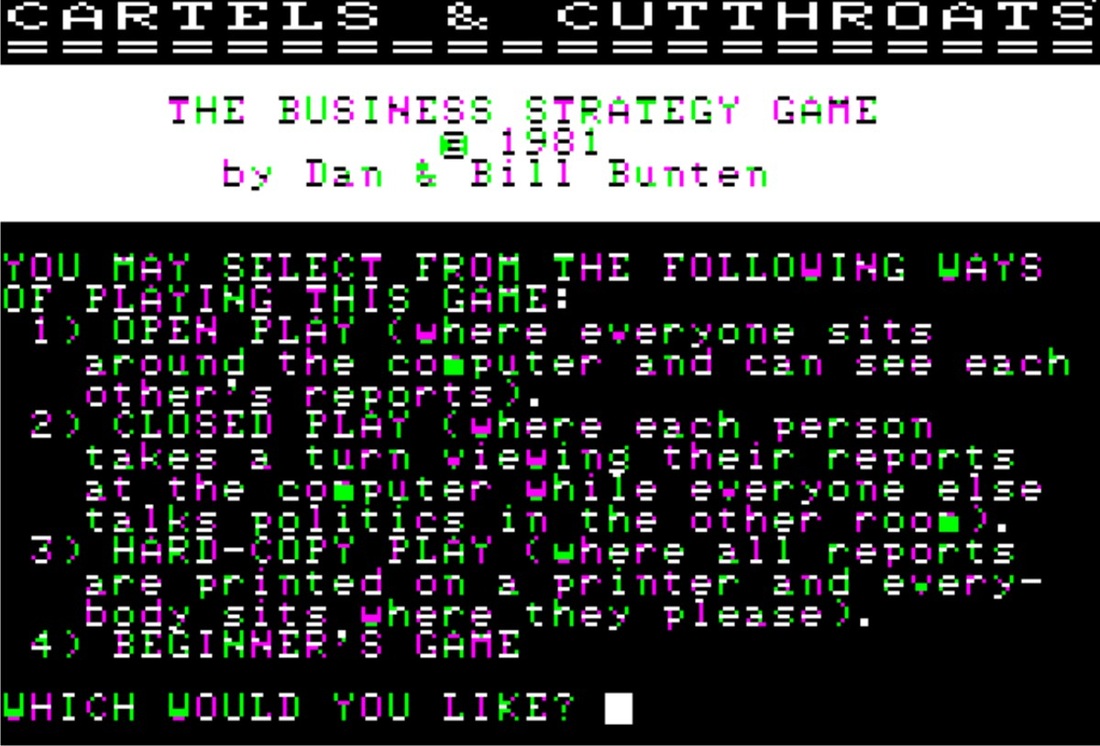
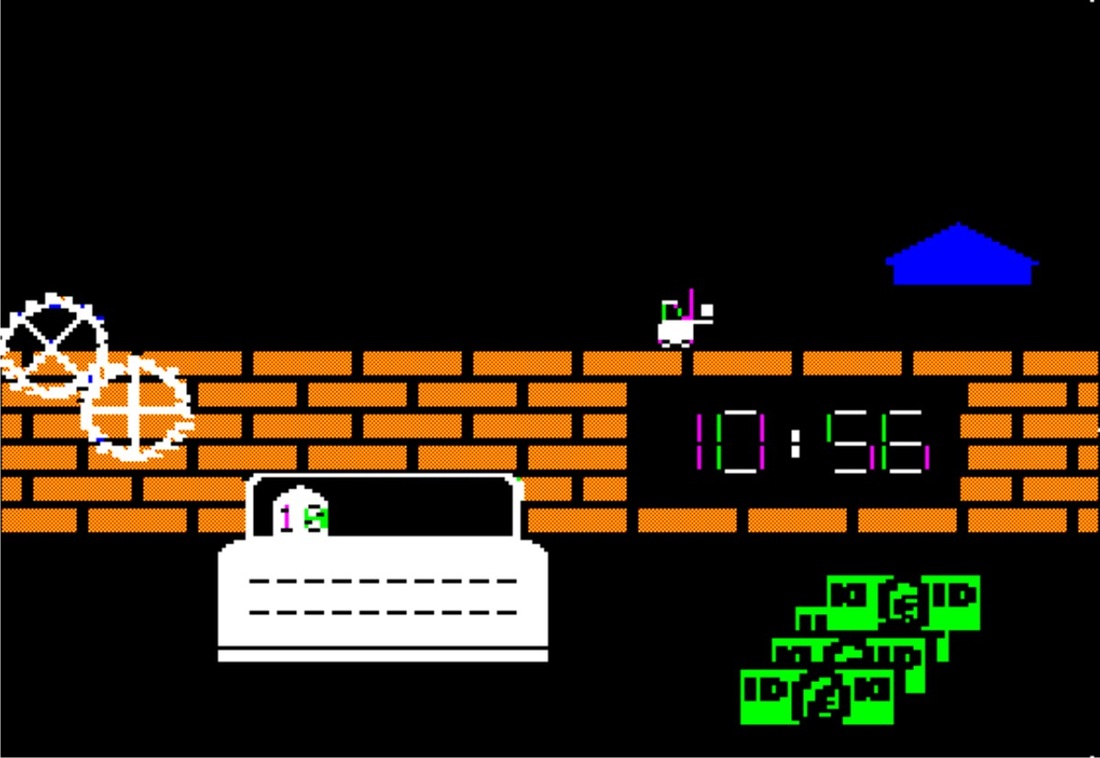
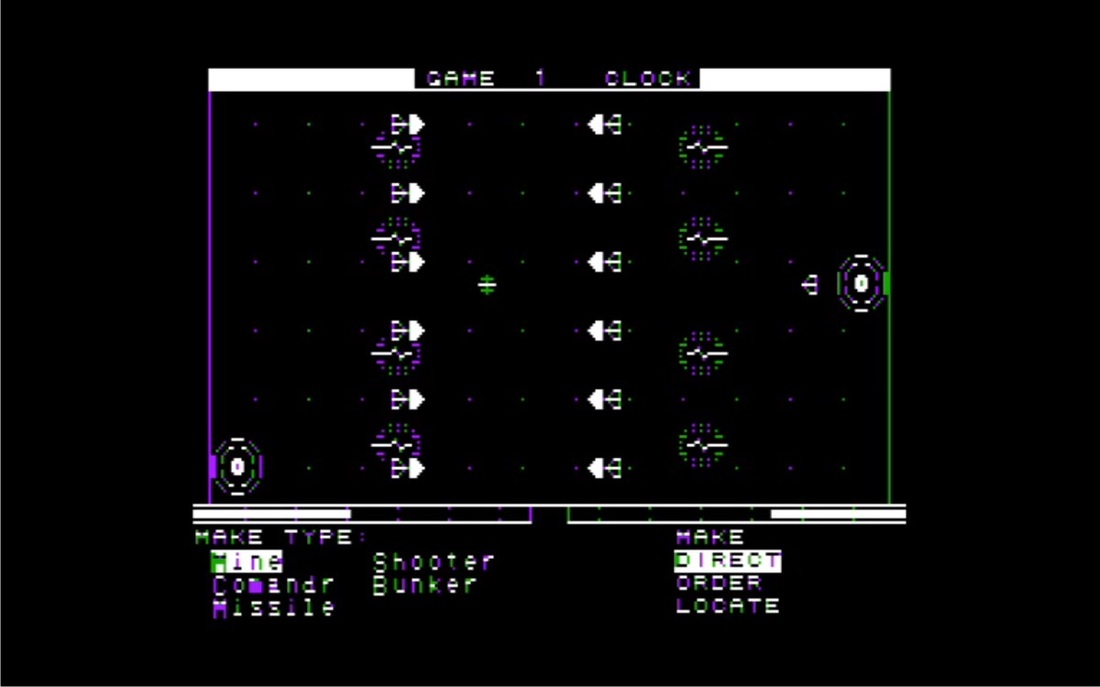
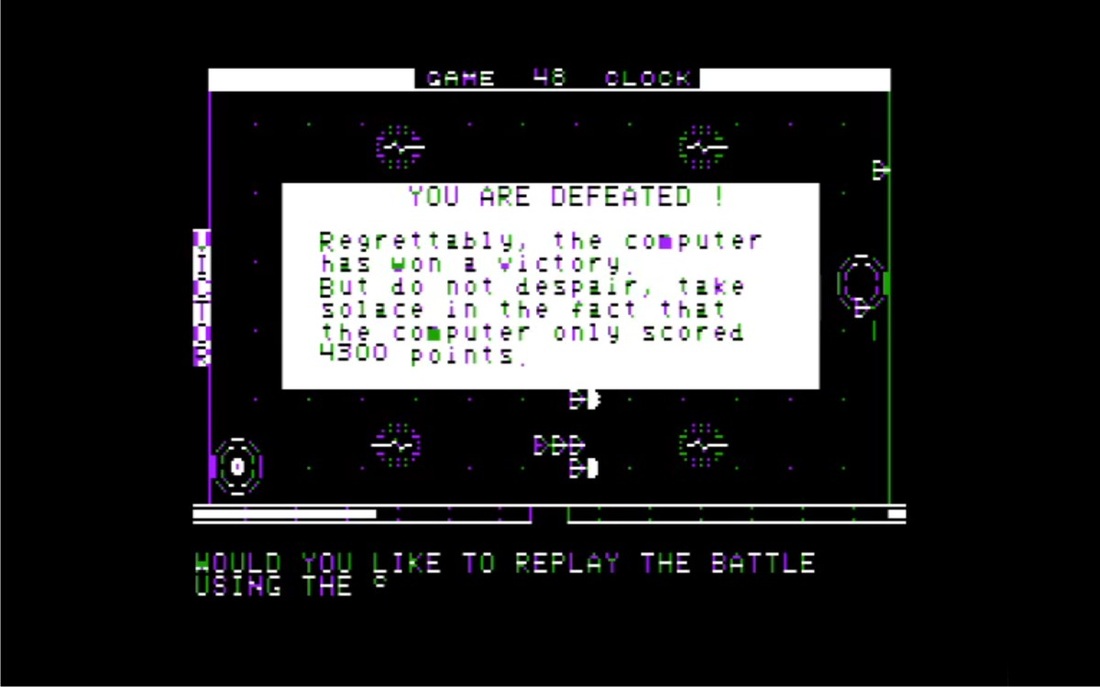
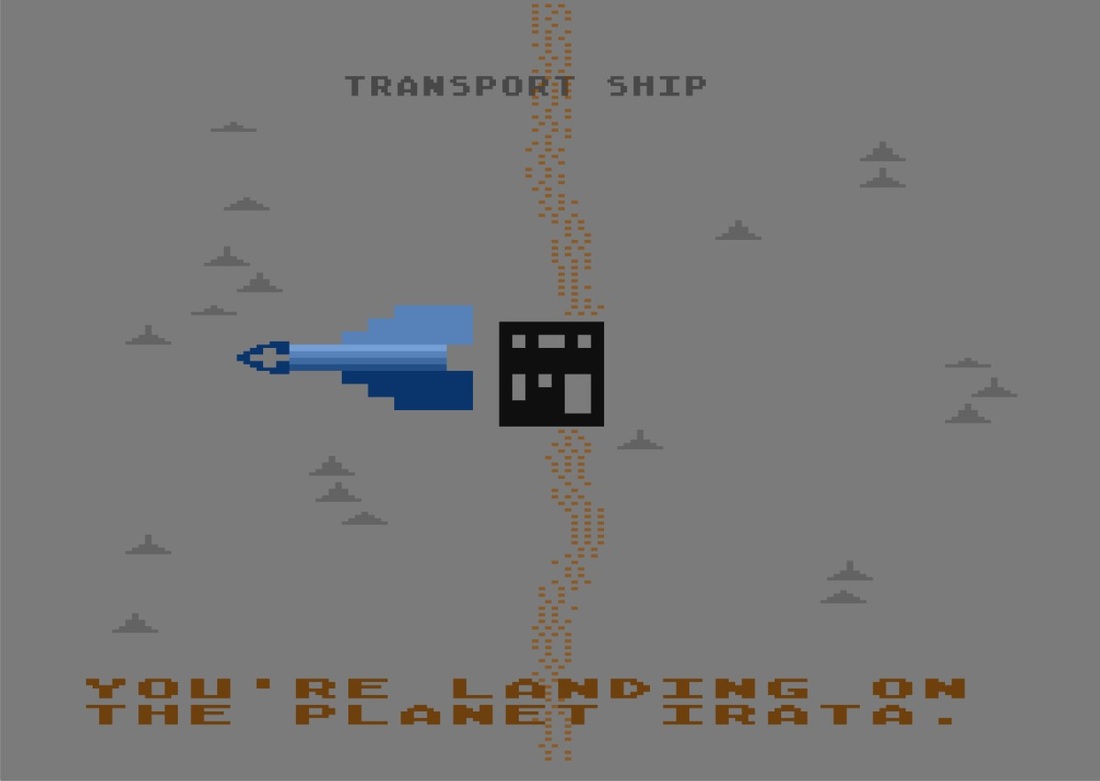
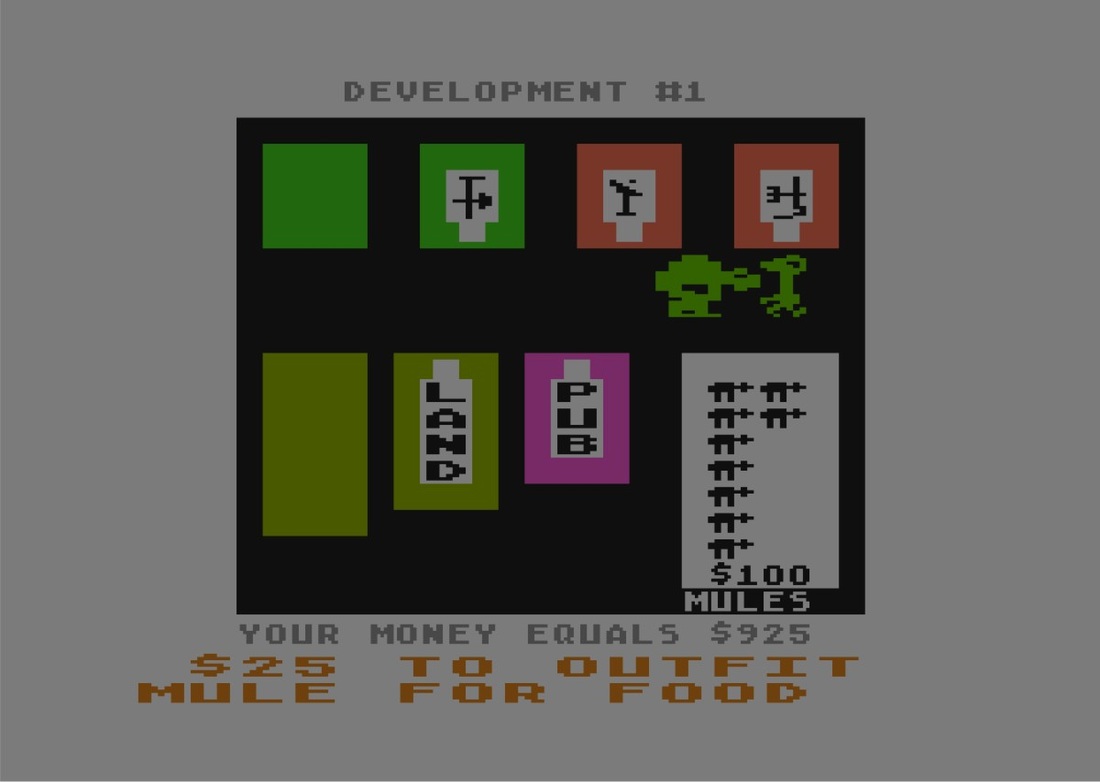
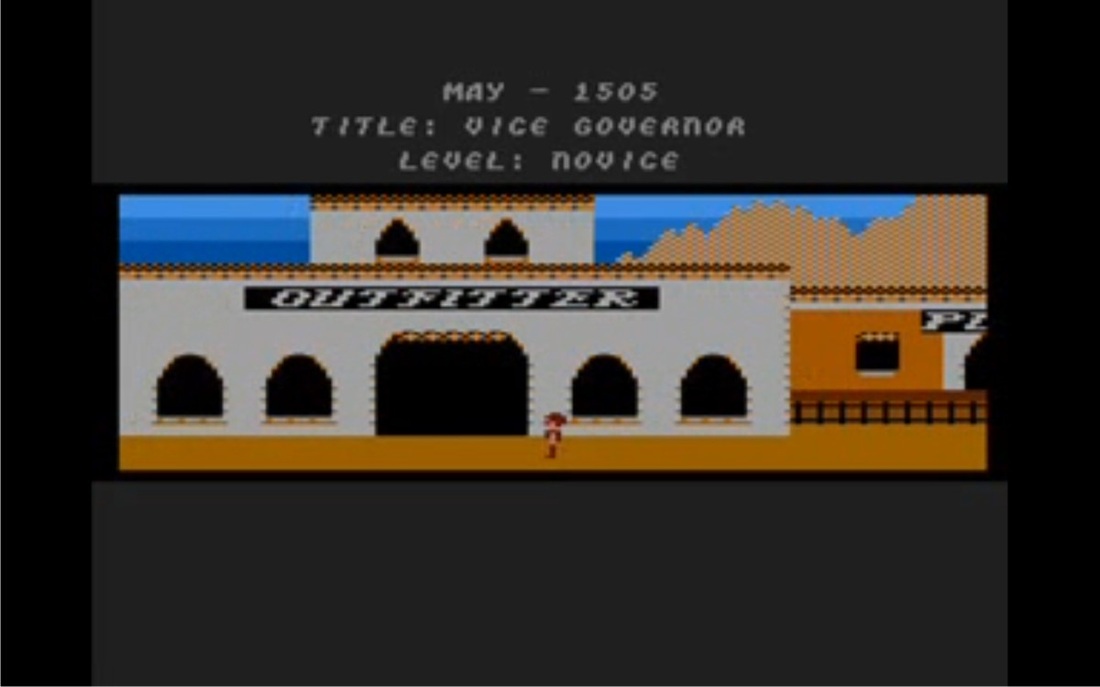
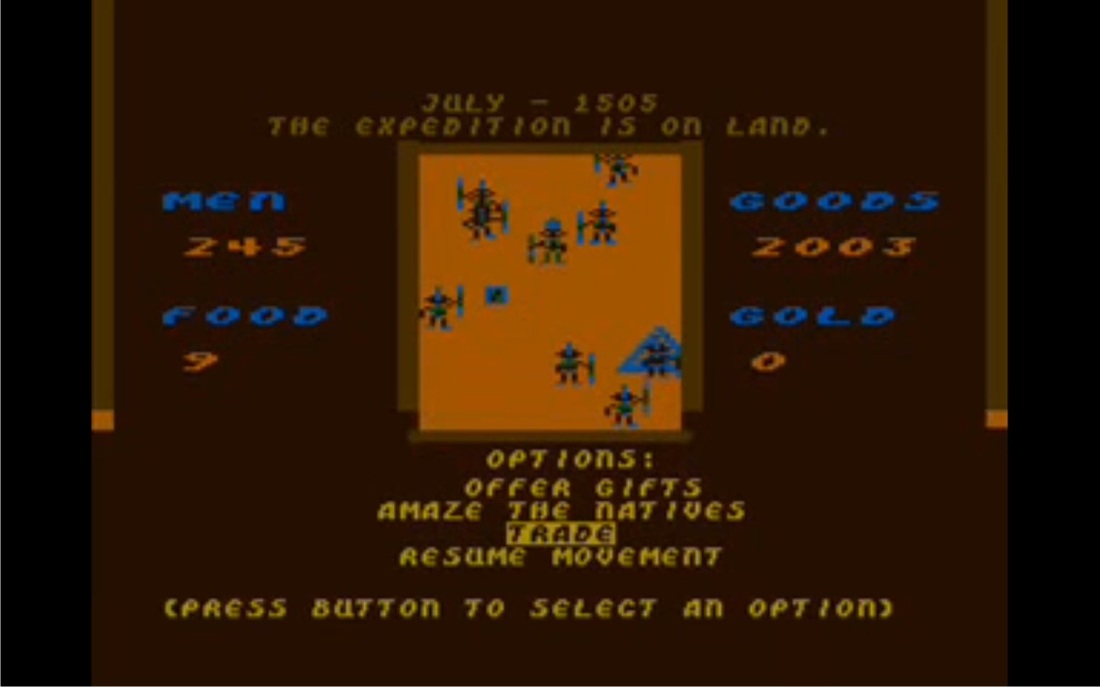
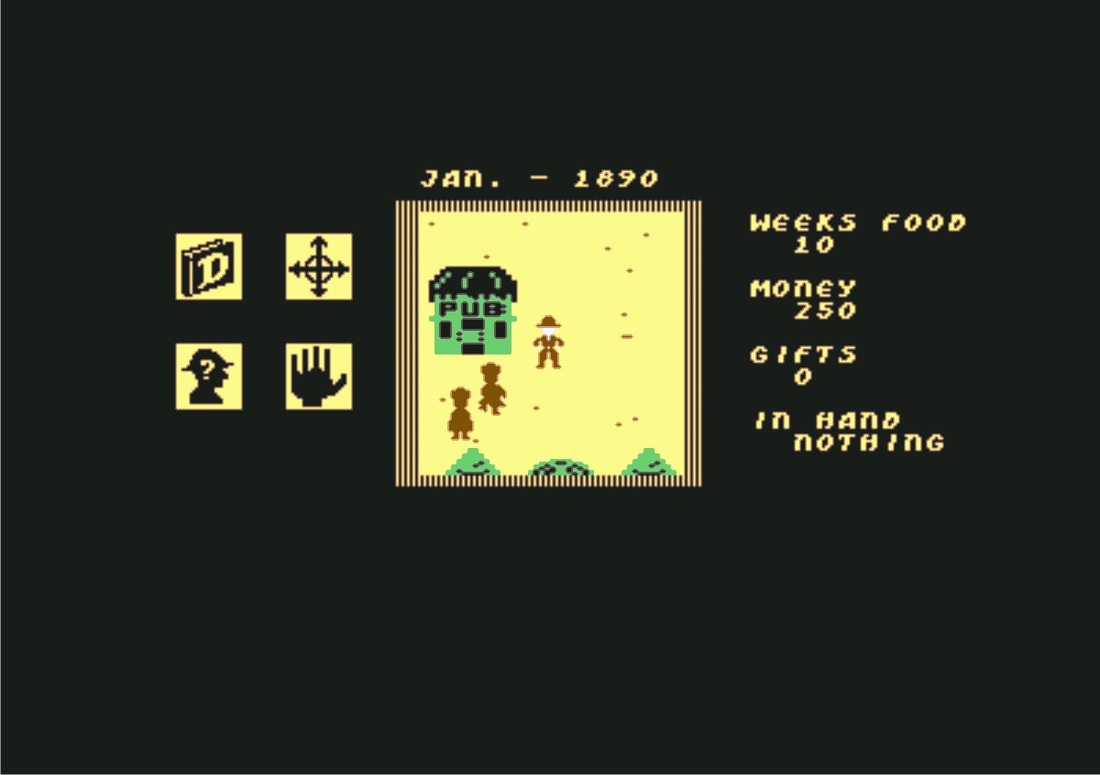
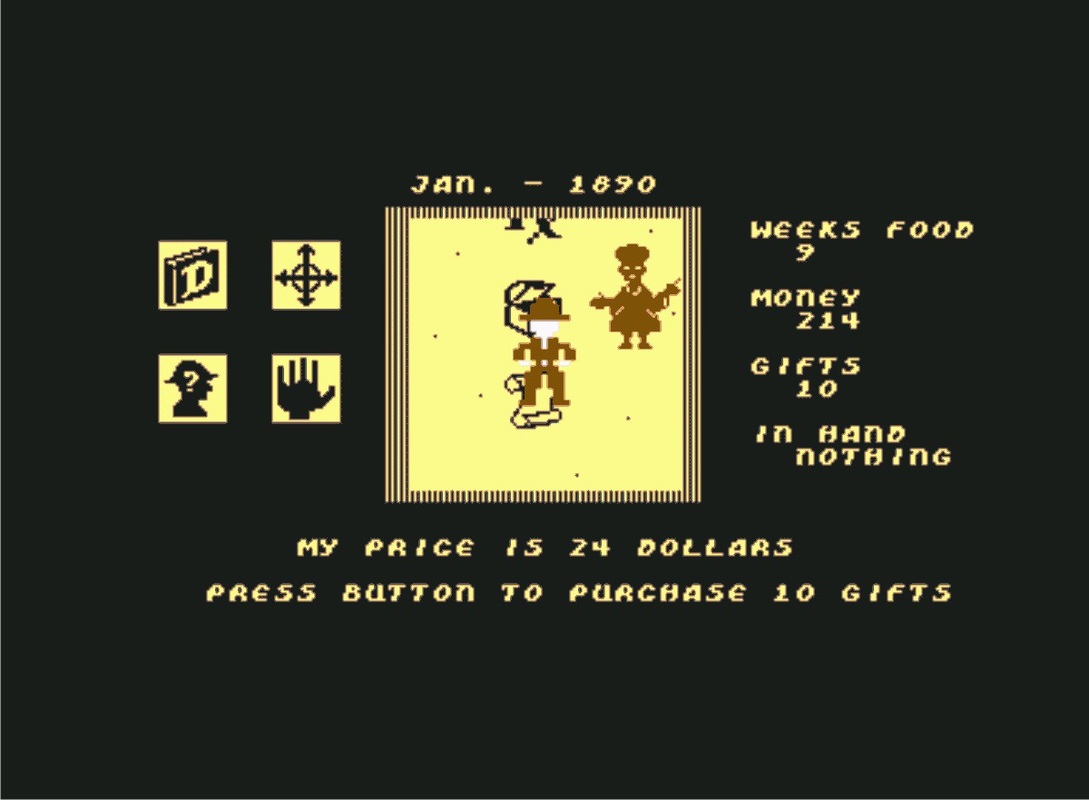
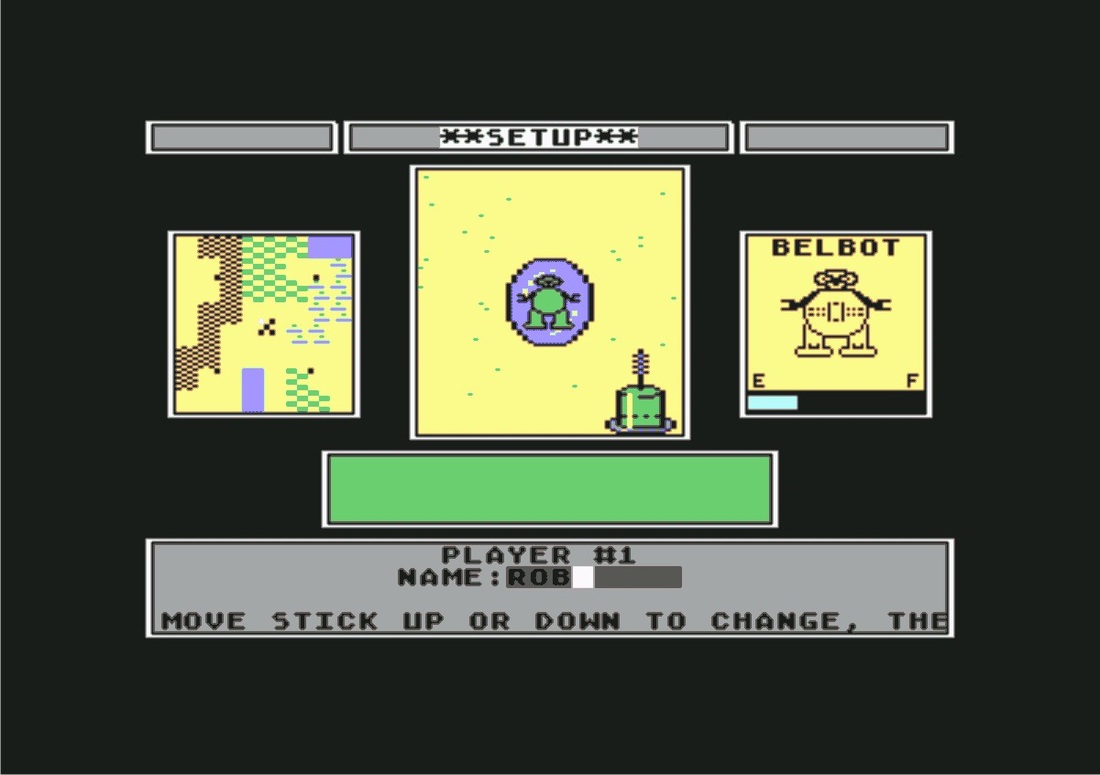
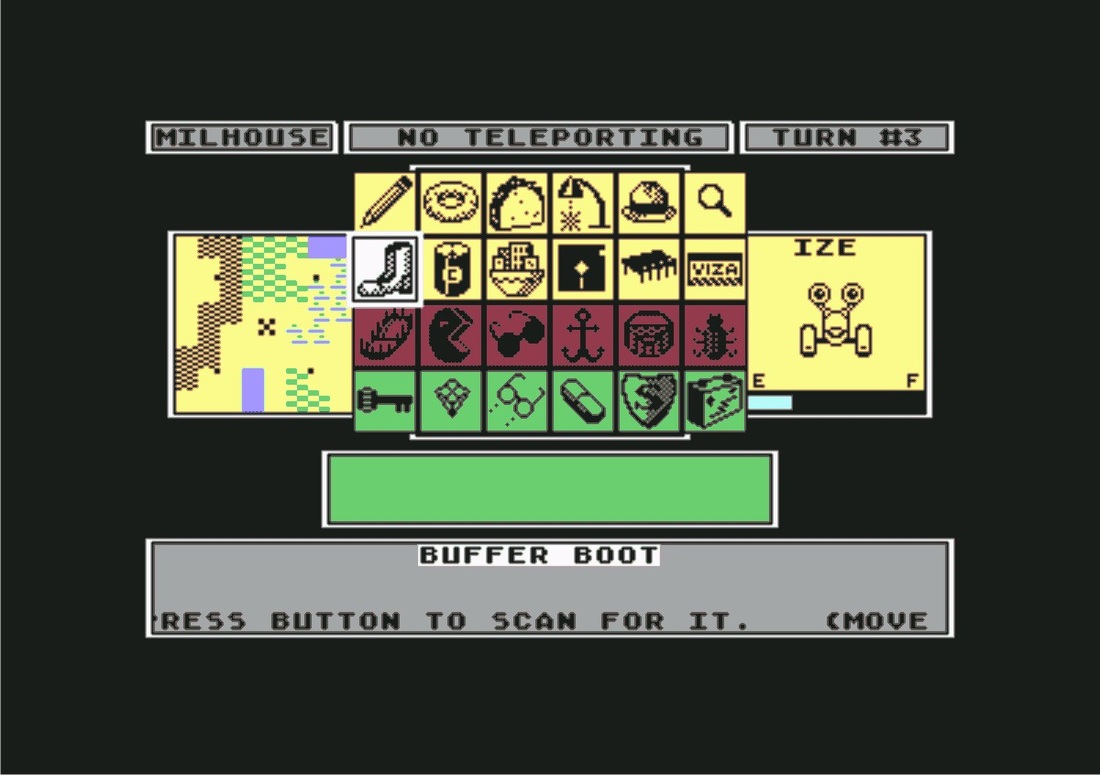
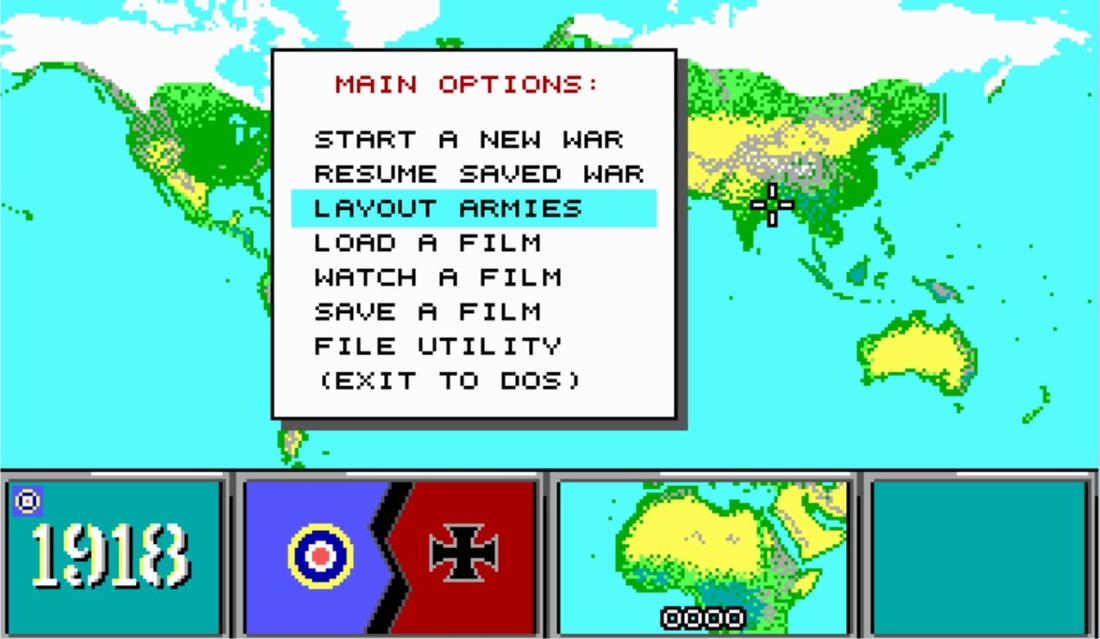

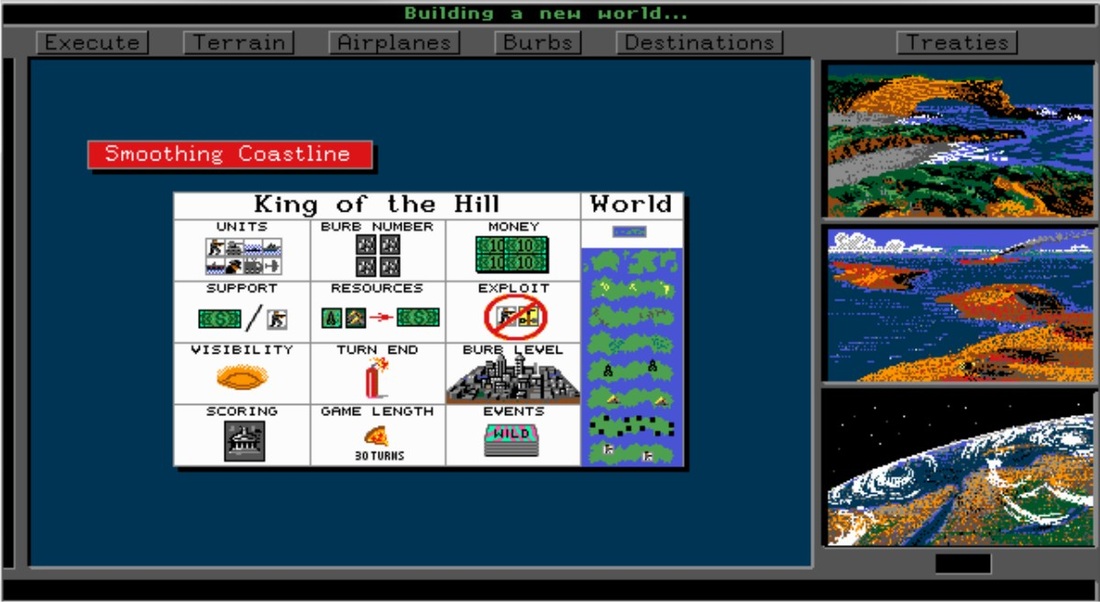
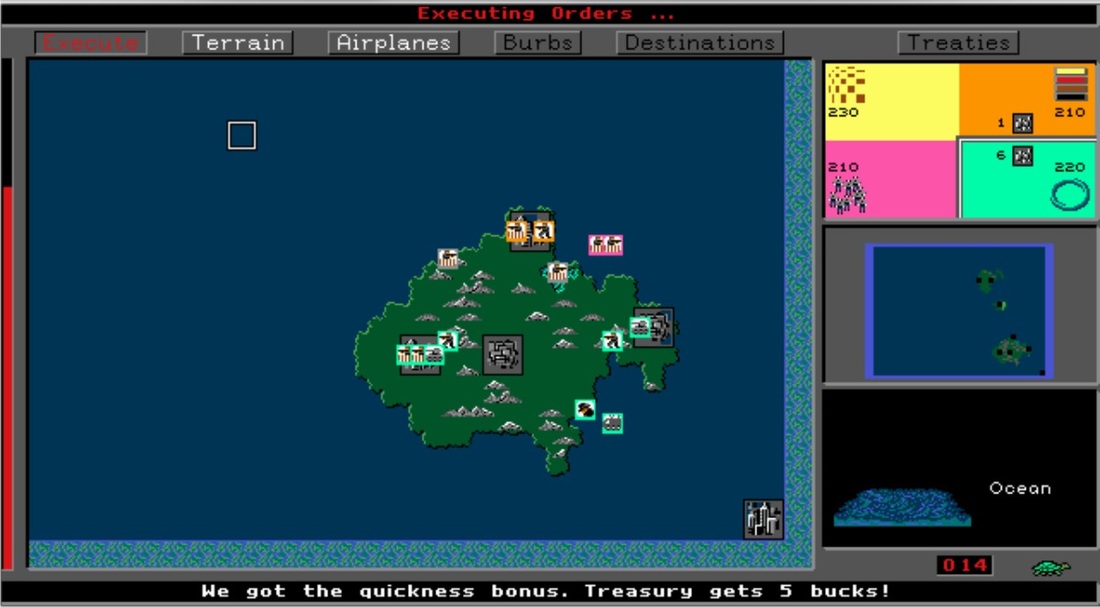


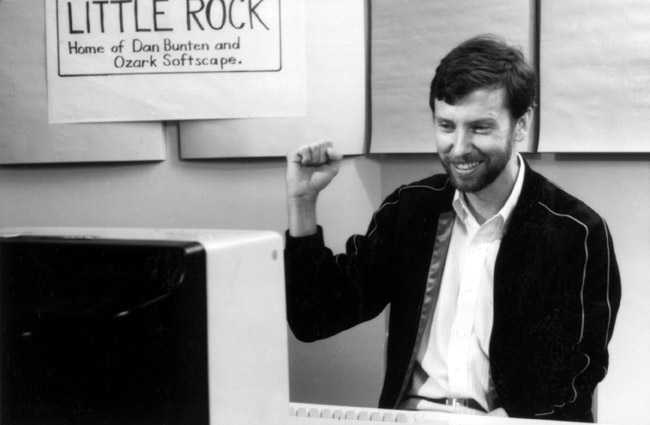
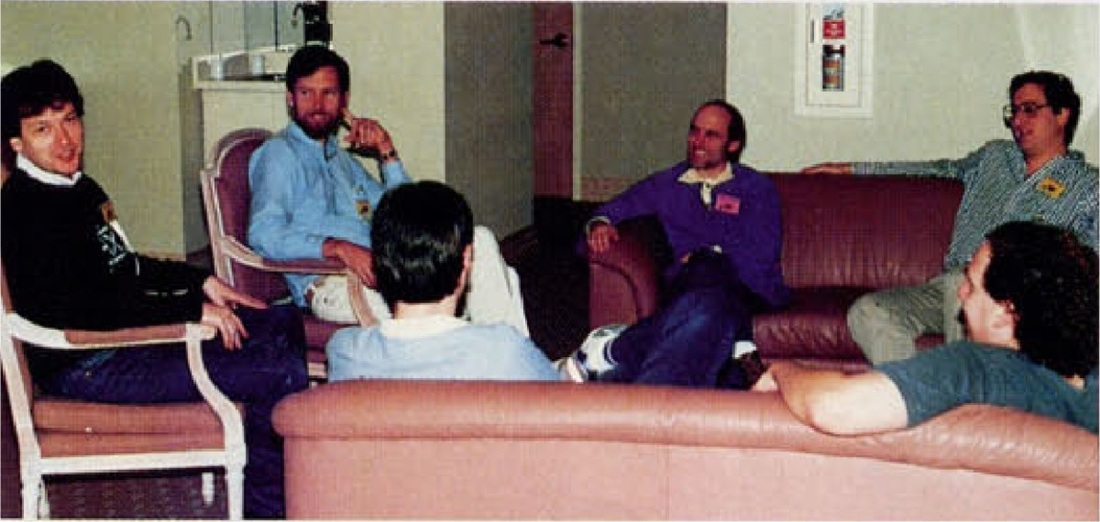
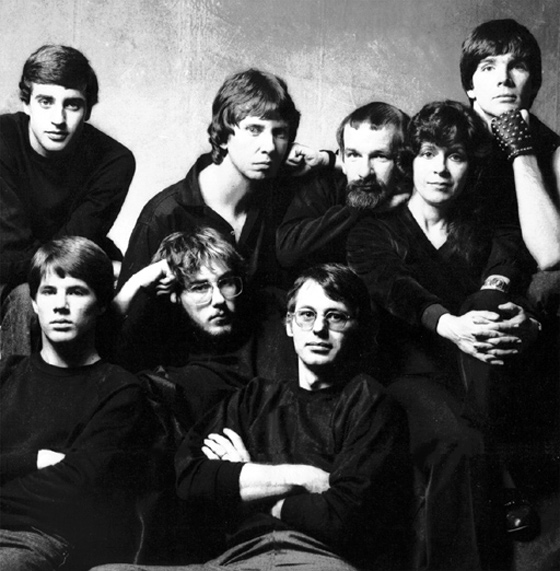
 RSS Feed
RSS Feed
